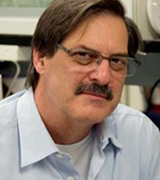Gregory A. Dekaban

Scientist
Professor
Why I Became a Scientist
Growing up in the shadow of the National Institutes of Health (NIH) and The Bethesda Naval Medical Center, with a father, a clinician scientist in pediatric neurology at NIH, combined with a growing curiosity about all things biological and medical, I developed a natural inclination to become a scientist. So, I did, without doubt or regret.
Research Summary
The research in my laboratory is centered in two major areas:
- A focus of our research is to define the role of the CD11d CD18 integrin in leukocyte biology and inflammation of the central nervous system. Using immunological, molecular and cell biological techniques, my laboratory is defining the phenotype and function of different monocyte subsets that infiltrate the central nervous system following traumatic injury. In addition, my laboratory is involved in developing a novel anti-inflammatory treatment for spinal cord injury that involves blocking leukocytes from infiltrating the site of injury from the blood.
- The second focus on my research is the development of novel therapeutic vaccine approaches for cancer. The current emphasis is in developing dendritic cell-based therapeutic vaccines. The laboratory is working in collaboration with Dr. Paula Foster to develop real-time cellular magnetic resonance and magnetic particle imaging techniques as a means to track dendritic cell migration in vivo in humans.
Research Questions
Why does inflammation develop throughout the body when the only injury is trauma to the spinal cord?
Although spinal cord injury (SCI) and traumatic brain injury (TBI) can have long lasting and devastating neurological consequences, treating acute systemic inflammation following SCI and TBI is often more critical to survival. That SCI can elicit such a systemic inflammatory response suggests that a level of communication and control exists between the immune system and the central nervous system. By understanding the nature of the relationship between the central nervous system and the immune system it will become easier to develop therapeutics strategies to treat neurotrauma more effectively.
Why are vaccines against cancer an effective immunotherapy for a few individuals but not for most cancer patients.
It is critical to understand how best to design a cancer vaccine such that it recognizes only the tumor without inducing an equally destructive autoimmune response to normal issue. Furthermore tumors develop sophisticated ways of evading an immune response even in the face of an effective vaccine response. Thus, it is important to understand the nature of these tumor-specific immune evasion strategies. Through such an understanding it will be possible to block the tumor’s immune evasion strategy which in turn will result in the cancer patient responding more effectively to an anti-cancer immunotherapy.
Education
- Honours B.Sc. in Biochemistry, Queen’s University
- Ph.D. in Biochemistry, University of Western Ontario
Training
- Post-Doctoral training at the Frederick Cancer Research Facility
Awards
- National Cancer Institute of Canada Studentship
- Morris Kroll Memorial Scholarship for Cancer Research
- International Fogarty Post-Doctoral Fellowship
- Medical Research Council of Canada Post-Doctoral Fellowship
- Ontario Ministry of Health Career Scientist Award
- Ontario Ministry of Health Career Scientist Award, renewed
- University of Western Ontario President’s Occupational Health and Safety Award
Publications
Contact Info
Gregory A. Dekaban, Ph.D.
Scientist, BioTherapeutics Research Laboratory
Director, Molecular Medicine
Robarts Research Institute, Room 2214
1151 Richmond Street, North
London, Ontario
N6A 5B7 CANADA
Phone: 519-931-5777 ext. 24241
Email: dekaban@robarts.ca
Phone: 519-931-5777 x25718
Email: dander28@uwo.ca








